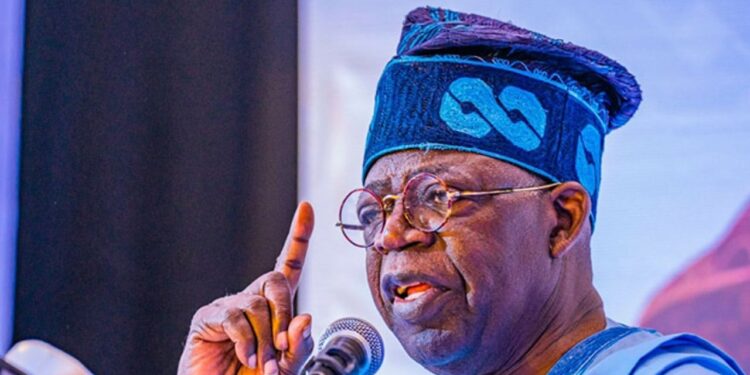The Northern Youth Assembly (Majalisar Matasan Arewa) has recently penned a letter to President Bola Ahmed Tinubu, urging him to remain vigilant about certain individuals within his administration who may be plotting to incite anarchy in the state.
This letter, dated 25th May, 2024, was also sent to the United Nations Office in Abuja, the European Union Embassy, ECOWAS in Abuja, the US Embassy in Abuja, the British High Commission in Abuja, the US Congress, and the European Union.
In their letter, signed by Dr. Ali Idris, President, and Dr. Garba Abdulhafiz, Secretary General, the youth expressed their concerns regarding the recent changes in Kano State’s emirate law which some people are capitalising on to cause chaos.
They emphasized that any attempt to undermine the law by the federal government’s agents would only result in chaos.
“As representatives of the Northern Youth Assembly, encompassing chapters in the Nineteen Northern States and Abuja, we find it necessary to bring to your attention, as a democratically elected president, the recent developments concerning the Kano Emirate.
“It is widely known that Nigeria, as a federal country, has a constitution that delineates the powers of the central government and the sub-national governments, which represent the recognized federating units.
“Sir, one of the powers granted by the Nigerian constitution to the State Assemblies at the sub-national level is the ability to legislate for the betterment and welfare of their states and citizens.
“This constitutional right includes the ability to create new laws, amend existing laws, and repeal laws. In 2019, the Kano State House of Assembly exercised this power by amending the Kano State Emirate Councils Laws, resulting in the creation of four additional emirates. This law was subsequently approved by the then Governor, Dr. Abdullahi Umar Ganduje. The current Kano State House of Assembly also exercised its legislative powers by repealing the same law and dissolving the newly created four additional emirates in the state, with the assent of Governor Engineer Abba Kabir Yusuf. Both assemblies fulfilled their constitutional and legislative duties in accordance with their discretion,” the youth said.
The youths alleged that certain officials within Tinubu’s government, including the National Security Adviser, Mallam Nuhu Ribadu, were working on an unprecedented and malicious plan to forcefully impose the removed Emir of Kano, Alhaji Aminu Ado Bayero, on the people of Kano.
They claimed that this plan involved using the security apparatus of the federal government, under the pretext of complying with a court order granted by a Federal High Court Judge while he was on vacation in the United States.
“This blatant encroachment on constitutional democratic practices undermines the authority of sub-national and federating units, and constitutes a clear interference in the exercise of their constitutional powers,” the youths said.
They said such developments not only tarnish the reputation of Tinubu’s government but also undermine his image as a staunch democrat.
“We fear that your government and its appointees may be perceived as lacking respect for democratic governance, practices, and constitutional authority,” the letter said adding that, “we would like to draw your attention to the fact that Kano has been peaceful.
“Any attempt to disrupt this peace by succumbing to the interests of a few selfish individuals, against the wishes of over 20 million Kano residents, may lead to chaos and anarchy.
“It is likely to cast your government in a negative light, portraying it as one that undermines democratic institutions by usurping the constitutional rights, authorities, and powers of sub-national democratic structures.
“It may also invite animosity from the people of Kano and the entire Northern Nigeria, as Kano’s wellbeing is intertwined with that of the entire region,” the youths added.”











